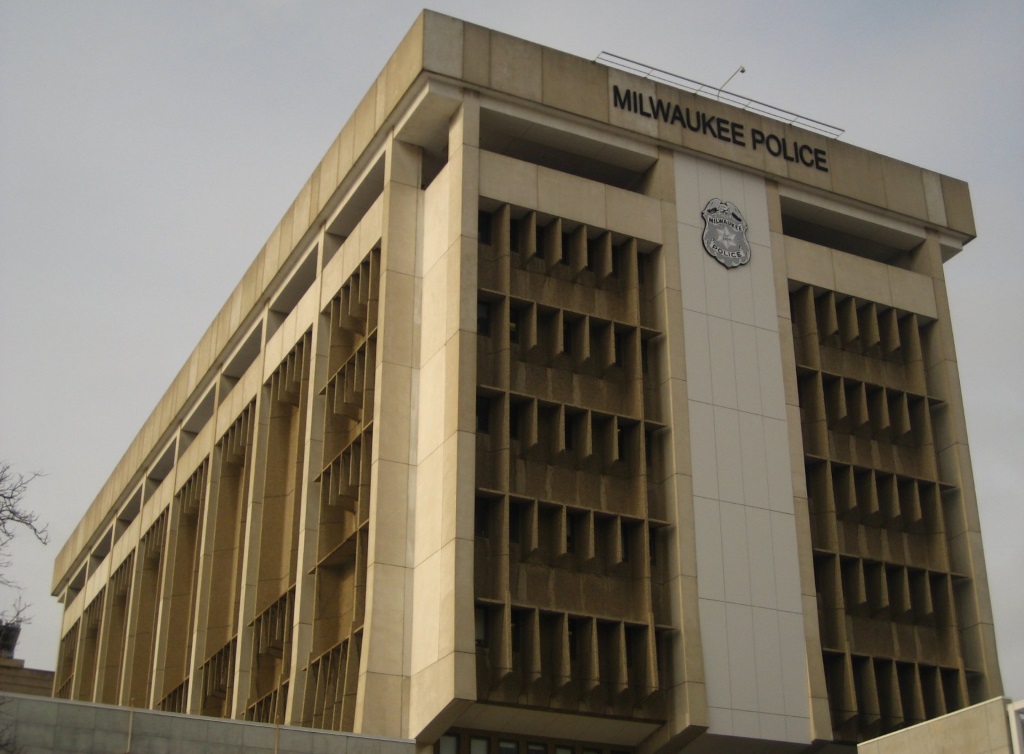16 Court Reforms of Police Department
ACLU stop-and-frisk settlement requires many changes by Milwaukee Police Department.
Information about Milwaukee Police Department stops, frisks, and searches will be publicly reported each year, while the civilian complaint process will be overhauled to ensure complaints are seriously considered, under a settlement reached in a federal court case challenging the constitutionality of MPD’s stop and frisk practices.
The city also will be required to hire an independent consultant to determine if the city, the Police Department, and the Fire and Police Commission are complying with the settlement and making appropriate progress in correcting unlawful stops.
Combined, the provisions of the settlementare intended to “begin to change…the culture, the behavior” of officers, said Karyn Rotker, senior staff attorney for the ACLU of Wisconsin.
The ACLU of Wisconsin, along with the American Civil Liberties Union and the Covington & Burling law firm, brought the class action lawsuit on behalf of African-American and Latinx residents who challenged the constitutionality of MPD’s traffic and pedestrian stops and alleged they were racially biased.
The city denied wrongdoing.
The ACLU said traffic and pedestrian stop rates in Milwaukee were more than six times higher for black people than white people. The disparity was found after controlling for crime rates and other factors that can influence stop rates. Searches of black and Latinx drivers were more than 20 percent less likely to lead to the discovery of drugs than searches of white drivers, the ACLU said in a statement.
Between 2010 and 2017, according to the civil rights organization, MPD conducted more than 350,000 pedestrian and traffic stops for which they have no record of reasonable suspicion of criminal activity or a traffic or vehicle equipment violation, as required by the Fourth Amendment, according to the ACLU.
The settlement, already approved by the Common Council, will make public far more information about MPD stop and frisks than is currently available or even is consistently collected.
Under the settlement, the department will be required to, first, collect detailed information about each stop, including demographic information about the subject; location of the stop; the legal basis for the stop; whether a frisk was conducted; whether any contraband was found; whether the officer(s) used force; and whether officers took any action, such as making an arrest or issuing a ticket. The Fire and Police Commission will publish a report on the information annually.
The requirements should “show the public they’re (police) eliminating unconstitutional stop and frisks,” Rotker said.
Second, officers who fail to fully document their stops or who do not properly make stops will be subject to counseling, training, retraining or discipline, she said.
Third, the changes will require training of complaint investigators “to not attack or blow off the complainant,” she said. Some individual plaintiffs in the case did try to file complaints after they were stopped by police, but the complaint process was too difficult or complex or they were “blown off” so they did not complete it, she said.
Fourth, the settlement requires the city to make complaint forms easier for citizens to complete. The form must be available in a variety of languages. And the city must accept complaints whether they are filed by phone, snail mail, email, or other methods and ensure that staff who accept complaints “are trained not to, and in practice do not, discourage the filing of any complaint.” The settlement prohibits the city from requiring that complaints be notarized, and requires investigators to interview complainants away from police stations unless the person consents to a station interview. The reformation of the civilian complaint process will apply to all civilian complaints, not just those about stop-and-frisk incidents, she said.
Fifth, the settlement also forbids the city from investigating complaints in a way that shows bias against complainants. Prohibited practices include asking hostile questions of complainants; “applying moral judgments related to the dress, grooming, income, life-style, or known or perceived criminal history of complainants; giving testimony by officers greater weight than testimony by complainants; providing summary reports that disadvantage complainants and are unrelated to facts developed in the investigation; issuing complaint dispositions that are not justified by the facts developed in the investigation; (and) recommending inconsistent discipline for officer misconduct.”
Ten more reforms the 53-page settlement agreement requires of the police and city include:
6. Maintain the existing Milwaukee Collaborative Community Committee, established to review the U.S. Department of Justice report on the Police Department, to “seek community input on police department operations to improve trust between law enforcement and city residents”;
7. Announce during trainings that there are no formal quotas for traffic stops, field interviews, frisks, searches or arrests;
8. Revise policies to make clear that officers cannot rely only on general factors, such as “appearance or demeanor” of a person, the “hour of the day or night,” or the “inappropriate presence” of a person in a neighborhood to make a stop;
9. Require officers to activate body cameras and audio recorders during traffic and pedestrian stops;
10. Prohibit MPD from entering into any criminal database information about individuals who are stopped but released without further legal action unless there are specific facts to support suspicion that the person is involved in criminal conduct;
11. Adopt policies to ensure “continuous supervision” of officers who conduct stops;
12. Ensure that police supervisors review arrest reports and at least 50% of documentation related to stops;
13. Audit data and video to identify officers who fail to conduct stops and searches properly;
14. Audit civilian complaints;
15. Publish data about complaints on the Fire and Police Commission website; and
16. Refer for investigation any officer who, in a three-year period, conducts four or more stops, frisks, or searches that are not supported by reasonable suspicion or are not properly documented.
The settlement signals a city “commitment to its people to break the pattern of baseless, unlawful police stops and frisks and racial and ethnic profiling,” said Jason Williamson, deputy director of the ACLU’s Criminal Law Reform Project.
“We hope this sends a message to other cities about the need to advance fairness and equal treatment in policing,” he said in a prepared statement.
Gretchen Schuldt writes a blog for Wisconsin Justice Initiative, whose mission is “To improve the quality of justice in Wisconsin by educating the public about legal issues and encouraging civic engagement in and debate about the judicial system and its operation.
More about the Stop-and-Frisk Lawsuit
- Milwaukee Hires New Monitor For Policing Settlement - Jeramey Jannene - Feb 16th, 2026
- Five Years After Settlement, Racial Disparities Remain In MPD’s Practices - Edgar Mendez - Nov 10th, 2023
- Black City Residents Still More Likely to Be Stopped, Frisked by Police - Evan Casey - Sep 26th, 2023
- Joint Statement from the Mayor, FPC and MPD - Mayor Cavalier Johnson - Sep 22nd, 2022
- Collins Settlement Agreement Report Highlights MPD’s Significant Improvement - Milwaukee Police Department - Oct 28th, 2021
- Report Finds Continuing Police Bias - Gretchen Schuldt - Sep 26th, 2021
- Police Haven’t Ended Stop and Frisks - Isiah Holmes - May 4th, 2021
- Police Stops Still Biased, Report Shows - Gretchen Schuldt - Sep 26th, 2020
- City Hall: Mixed Results on ACLU Settlement Compliance - Jeramey Jannene - Mar 26th, 2020
- City Hall: Committee Demands Stop-and-Frisk Plan - Gretchen Schuldt - Mar 2nd, 2020
Read more about Stop-and-Frisk Lawsuit here
Court Watch
-
No Unemployment Benefits For Worker Making Homophobic Remarks
 May 17th, 2022 by Gretchen Schuldt
May 17th, 2022 by Gretchen Schuldt
-
Appeals Court Upholds Injunction Against Abortion Protester
 Mar 13th, 2022 by Gretchen Schuldt
Mar 13th, 2022 by Gretchen Schuldt
-
80% of State’s Judicial Races Uncontested
 Feb 20th, 2022 by Gretchen Schuldt
Feb 20th, 2022 by Gretchen Schuldt






















